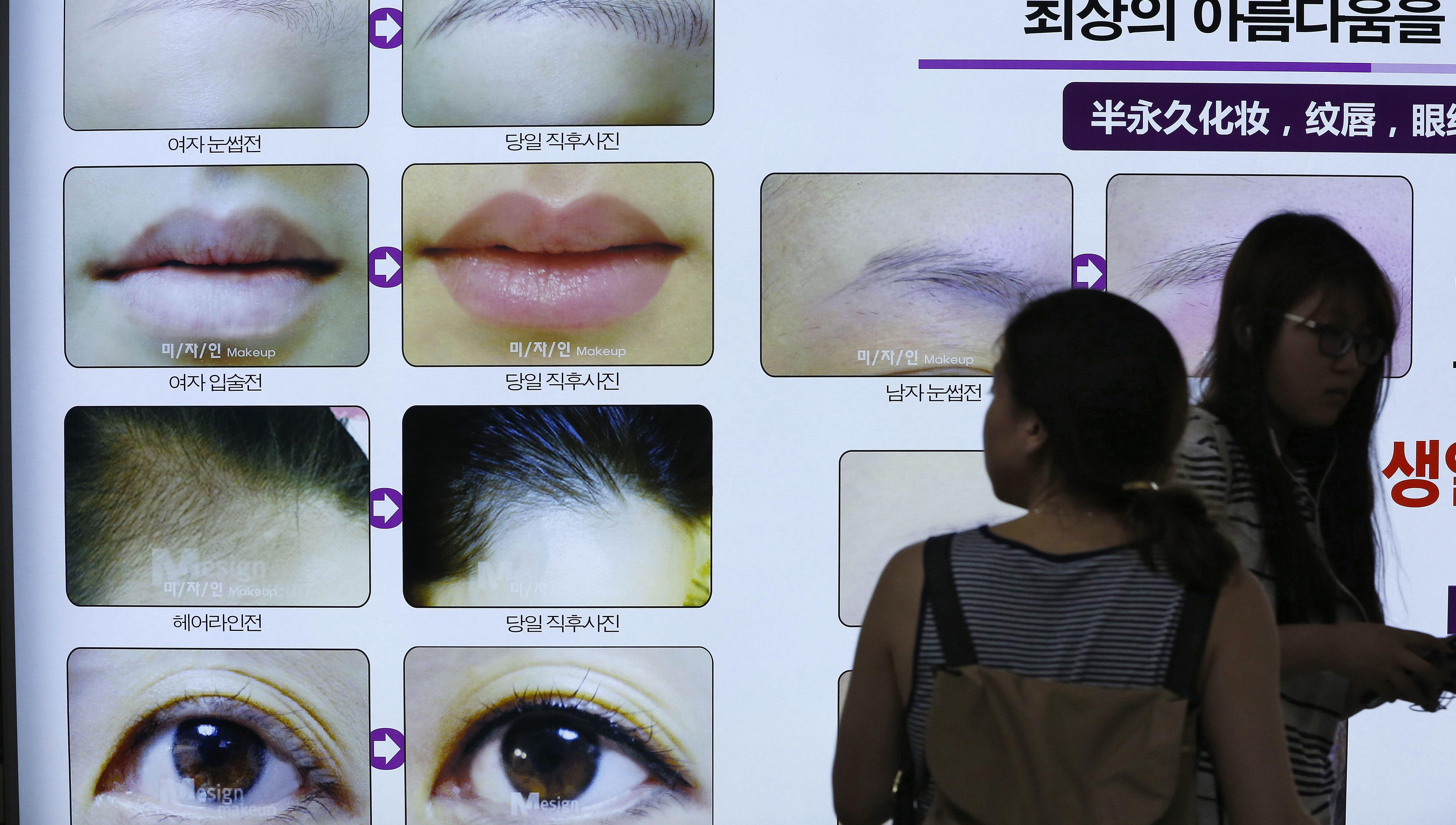South Korean girls rise up in opposition to strict beauty requirements
Share
When Cha Ji-gained determined to throw out all her makeup and cut her hair, her mom becomes the first to tease her: “Oh appearance, I even have a son now.”
For over a decade, when she was 12, Cha meticulously observed cosmetics, chasing the slender definition of splendor that dominates South Korean society. In center school, she applied basis to lighten her skin tone, keeping off teachers who could punish her for violating faculty guidelines.

She watched YouTube makeup tutorials to hone her abilities and, through her early 20s, would spend as much as 100,000 won (£70) a month on cosmetics. But amid a wider feminist awakening in South Korea, Cha has selected to ditch her makeup, lipstick, and dyed blonde hair.
I felt as though I had been born again,” Cha stated. “There’s a lot of mental power a person has each day, and I used to spend so much of it demanding about being ‘quiet.’ Now, I use that time to study books and exercise.
Cha is part of a rowing motion in South Korea fighting against unrealistic splendor standards that call for women to spend hours making makeup and performing skincare regimes that contain 10 steps or more at each quit of the day. Among their lawsuits is that girls must awaken two hours earlier than paintings to ensure the best makeup, meticulously removing useless skin with peeling gel and steam towels before starting their regimen.
Women ill of the laborious routine have started out to submit movies on social media of destroyed piles of cosmetics with the capture-cry “escape the corset,” likening makeup to the clothes that have been part of the day-by-day ladies’ clothes for years and labored to constrain our bodies into a uniform form.
Advertisement
The trend is part of a larger push in opposition to the country’s patriarchal society that has seen many girls take to the streets to call for greater equality and combat in resistance to illegal filming and sexual attacks.
The movement is a thrilling turn in South Korea, a state that actively promotes its prowess in cosmetic surgical treatment – as much as a 3rd of younger girls have long gone beneath the knife – and whose cosmetic manufacturers are coveted around the sector with industry well worth approximately $12.5bn (£9.7bn), in step with Euromonitor.
‘They can’t have any electricity over me.’Cha now spends approximately $ 2.75) a month at most on moisturizer and lip balm and has started a YouTube channel to elevate awareness of feminism, using the equal platform that taught her makeup techniques.

South Korea’s exacting splendor requirements are the end result of several factors that have mixed with inspiring ladies to aim for faded pores and skin, huge eyes, a high nose bridge, skinny legs, cherry-like lips, a small face, and a 9-to-one frame ratio, wherein the frame is nine times so long as the face. While each of us has our own feel of what is right, South Korea’s strong conformist streak has caused thousands and thousands to strive to achieve an equal appearance.
But over the last few months, the tide has turned, with heaps of posts on social media showing ladies smashing their cosmetics as a way of rejecting mainstream thoughts of splendor. One topic strolling through the motion is the idea of a beauty regimen as a shape of labor, one which the simplest girls are expected to carry out and for which they’re in no way compensated.
In one video, ladies unload eyeshadow, basis, blush, and nail polish onto a white sheet, developing a Jackson Pollock-fashion canvas. “I became embarrassed to move outside without this in the past,” one of the women says. “They can’t have any power over me while it’s so smooth to break them.”
In every other put-upon Twitter, one woman feedback: “I can’t trust I wore this on my face.”
While no facts display a drop in beauty income, anecdotal proof indicates the movement is hitting the bottom lines. According to nearby media, a nameless woman at a pinnacle South Korean cosmetics store changed into a traumatic new trend and deliberately focused on increasing income for men. Another makeup agency worker said companies were afraid to even admit the motion could be affecting them.

Rejecting makeup is the simplest marketing campaign against winning beauty requirements. A Korean information anchor at one of the most important television stations sparked a discussion in May when she became the first female to put on glasses on air.
Separately, Jiwon Park commenced an Instagram account for the remaining year to promote frame positivity and combat lower back towards the slender definition of splendor in South Korea.
“The motion doesn’t serve a most effective purpose to task the sexual objectification of girls; it also alternate the popularity of women as subordinate to guys,” said Lee Na-Young, a women’s studies professor at Chung-Ang University in Seoul. “As a result, we’re now not only seeing an alternate in makeup and cosmetics but also how girls dress.”





